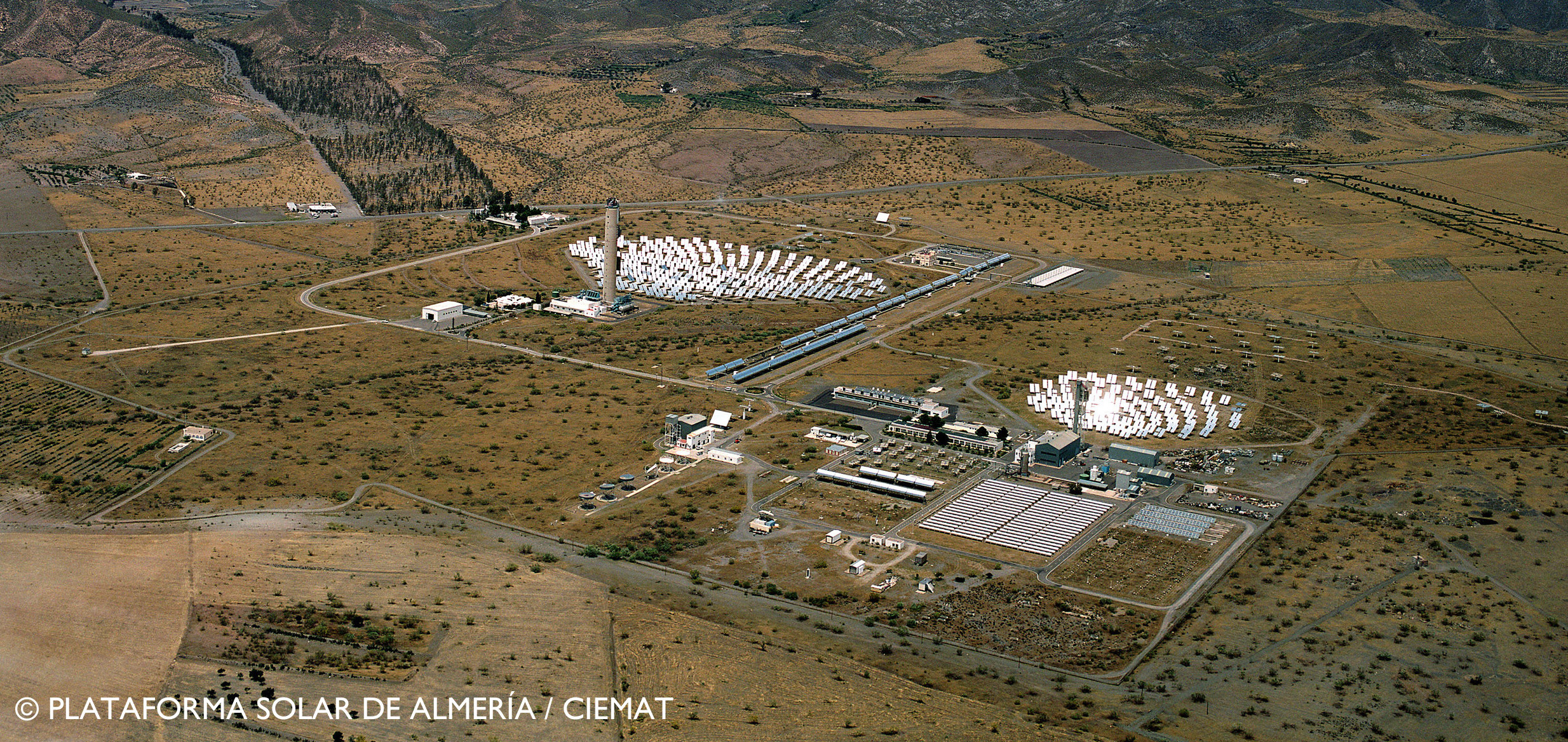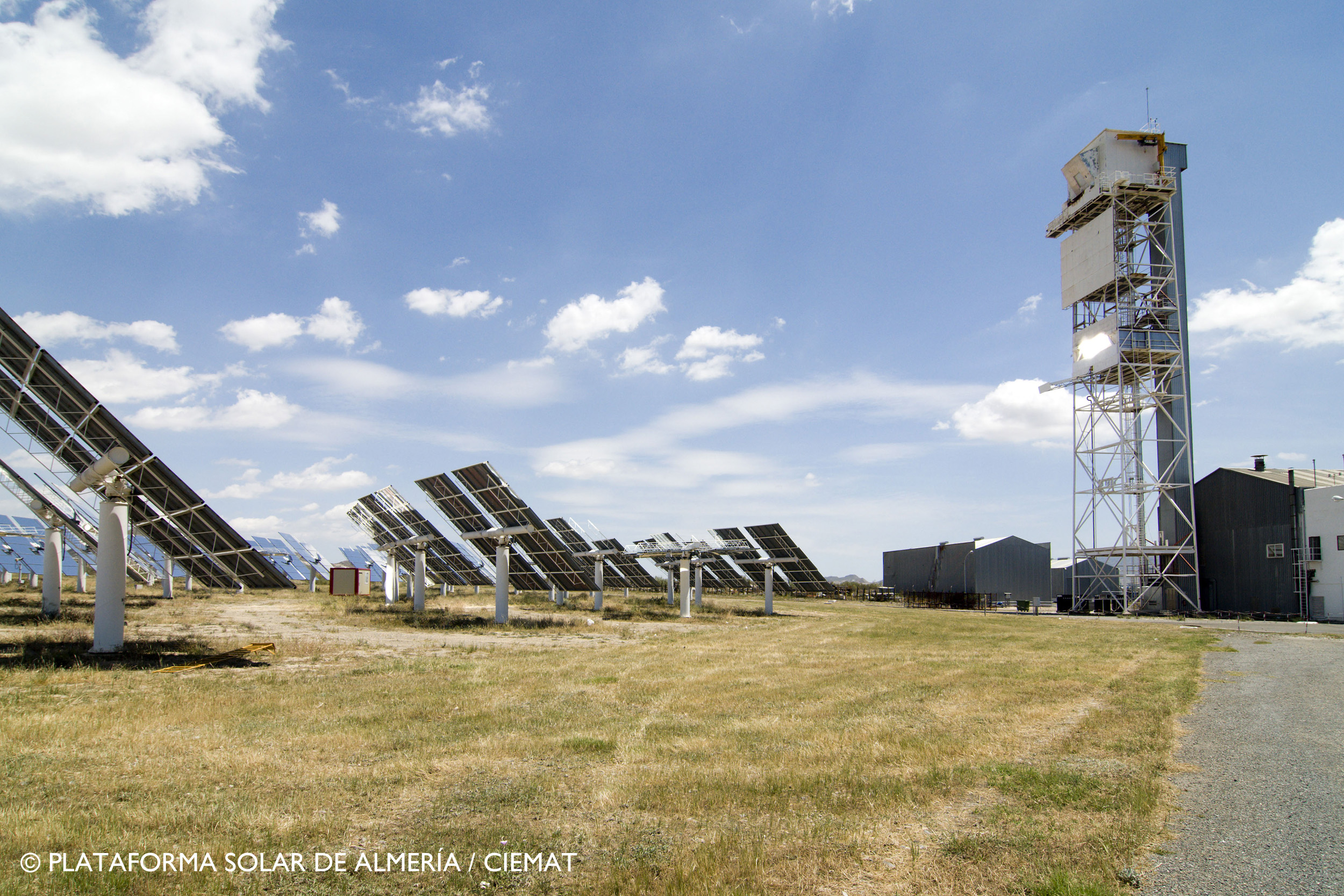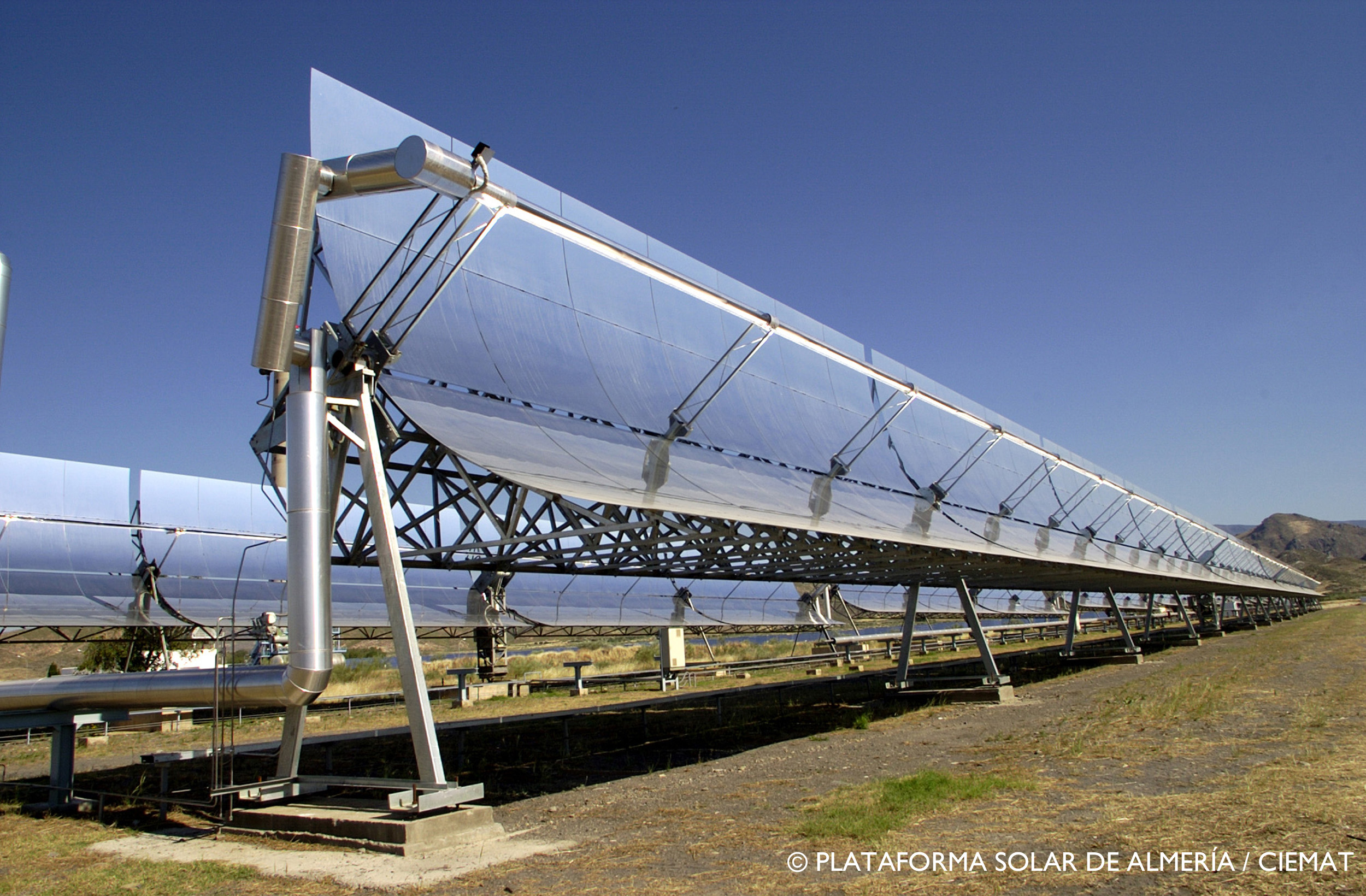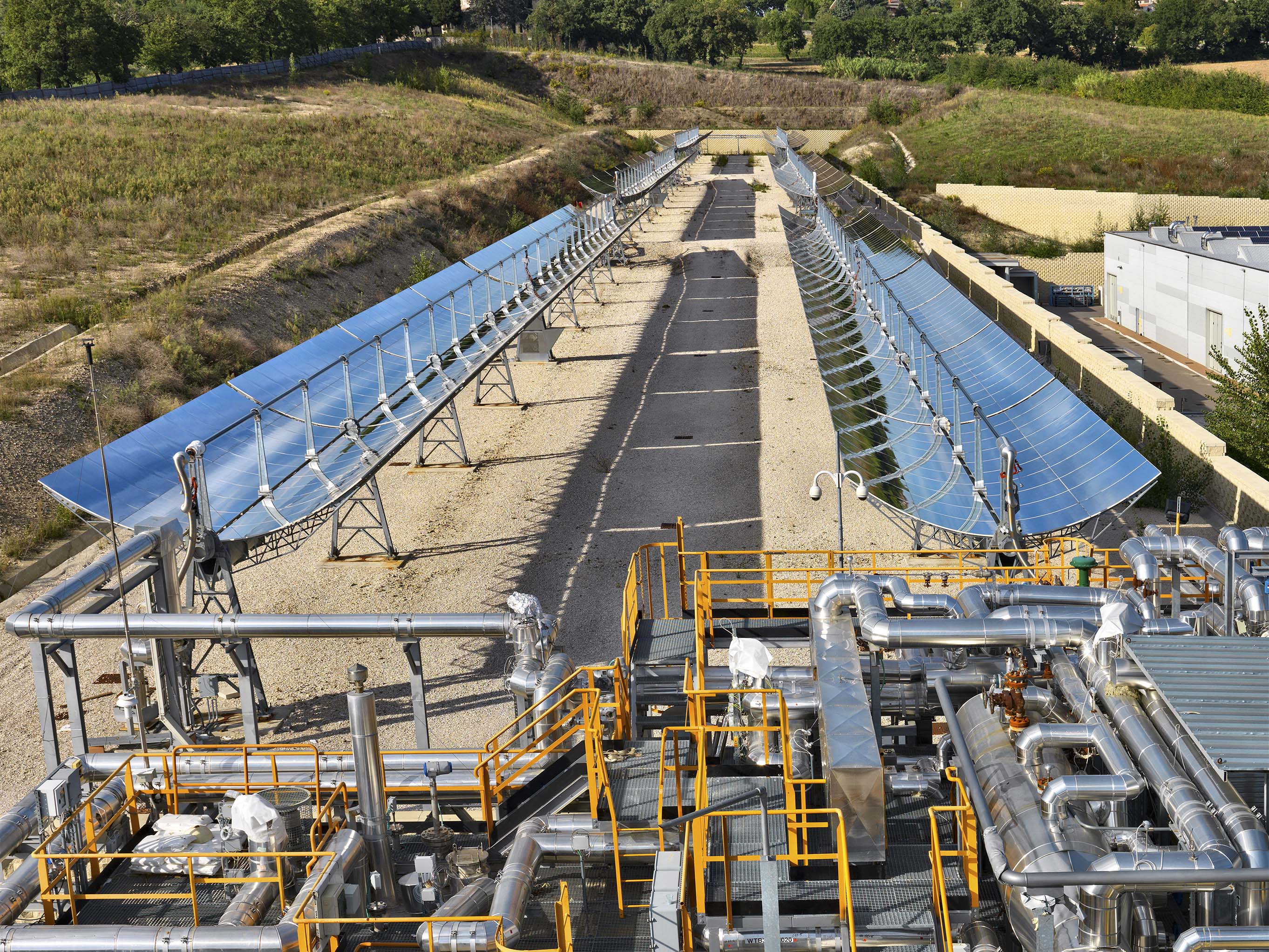Following the success of the first conjoint newsletter, four Horizon sister projects: CAPTure, MinWaterCSP, MOSAIC and WASCOP, have published a second newsletter in November 2017 with news related to project results, dissemination events and other news interest for the CSP community. The link for the second newsletter is available here. Subscribtion to the joint newsletter is available on this form: http://eepurl.com/cOtWvj
NEWS
WASCOP cooling and cleaning methods reported in NewEnergyUpdate article
Heba Hashem in his article “CSP research groups cut water use by 70% in desert efficiency drive” in NewEnergyUpdate:CSP presents several projects, including WASCOP, dealing with new anti-soiling, mirror monitoring and power block cooling technologies with the aim to reduce water usage of CSP plants. Charles-Andre Lemarie (HdH) and Itziar Azpitarte (TEK) has been interviewed to present the innovative methods experiments in WASCOP for cooling and cleaning activities, showing up that the target of a 70% water consumption reduction is achievable in a short time.
Joint LinkedIn Group “H2020 CSP projects”
A Joint LinkedIn groups has been created to communicate the ongoing activities and disseminate the results of the Concentrated Solar Power projects CAPTure, MinWaterCSP, MOSAIC and WASCOP, funded by Innovation and Networks Executive Agency (INEA) under the H2020 funding programme. Join the Group on this link: https://www.linkedin.com/groups/13519618
CSP project clustering Newsletter
Following the one-day workshop in Almeria and other joint activities, four H2020 projects (CAPTure, MinWaterCSP, MOSAIC and WASCOP), have published a first joint newsletter in June 2017 and plan to continue with a further edition at the end of 2017. The newsletter presents news about the project results, dissemination events and information about CSP policy and innovation. The link of the first joint newsletter is available here. To subscribe to the joint newsletter, please fill in this form: http://eepurl.com/cOtWvj
WASCOP and MinWaterCSP Survey: Water usage requirements for CSP plants
Following the successful workshop on water consumption, a joint survey from the H2020 projects WASCOP and MinWaterCSP has been set up in order to increase awareness and share future improvements on water usage in solar power plants.
CSP plant operators and owners are kindly invited to complete a quick survey related to “water usage in solar power plants” by clicking on the following link:
https://cranfielduniversity.eu.qualtrics.com/jfe/form/SV_cwgR5BPYNmQ0KW1
Information collected will be used to develop a document guideline for general operators/users about the water requirement. Please insert your e-mail at the end of the survey to share the results generated from this survey.
The survey require to be completed less than 15 minutes. Responses are requested by 25th April 2017.
Thank in advance for your feedback. For further information, please contact Dr Chris Sansom: c.l.sansom@cranfield.ac.uk
WASCOP M12 MEETING
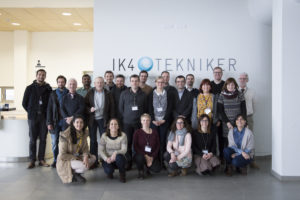 WASCOP M12 meeting was held on 18th and 19th January 2017 at TEKNIKER office in Eibar (Spain). Coordinator Delphine BOURDON welcomed the project team and the External Advisory Board (EAB) members Mr. Juan Ignacio Burgaleta (SENER) and Mr. Luis Crespo (ESTELA). In the first day, EAB members had the opportunity to hear about the achievements of WASCOP project, presented by the different partners during the WPs presentations. In the afternoon, a session was dedicated to the EAB recommendations to partners, mainly focused on the technology and solutions proposed by WASCOP. During the second day, an ordinary general assembly was organized to discuss the next steps in the management, dissemination and exploitation of the project, and the meeting closed with technical discussions occurred to take decisions and agree on next actions for both cooling and cleaning activities. Meeting was characterized by a collaborative and proactive behavior of all the participants. Special thanks to our host TEKNIKER for the excellent organization of the meeting.
WASCOP M12 meeting was held on 18th and 19th January 2017 at TEKNIKER office in Eibar (Spain). Coordinator Delphine BOURDON welcomed the project team and the External Advisory Board (EAB) members Mr. Juan Ignacio Burgaleta (SENER) and Mr. Luis Crespo (ESTELA). In the first day, EAB members had the opportunity to hear about the achievements of WASCOP project, presented by the different partners during the WPs presentations. In the afternoon, a session was dedicated to the EAB recommendations to partners, mainly focused on the technology and solutions proposed by WASCOP. During the second day, an ordinary general assembly was organized to discuss the next steps in the management, dissemination and exploitation of the project, and the meeting closed with technical discussions occurred to take decisions and agree on next actions for both cooling and cleaning activities. Meeting was characterized by a collaborative and proactive behavior of all the participants. Special thanks to our host TEKNIKER for the excellent organization of the meeting.
WASCOP at H2020 Coordinators’ Workshop on CSP
On 24th November 2016, the Innovation and Networks Executive Agency (INEA) hosted a H2020 Coordinators’ Workshop on Concentrated Solar Power. The aim of the workshop is to investigate potential synergies between projects in the area of Concentrated Solar Power. WASCOP project and his dissemination activities was presented to the audience and WASCOP representatives participated in the group discussions to identify potential synergies and overlaps. The main follow up actions after the workshop are:
- Background and methodology benchmark between Sister projects
- Conjoint training, summer schools and workshops
- Common booth in key CSP conferences and events
- Increasing the stakeholders’ identification and involvement
WASCOP on the H2020 Research and Innovation Magazine
“Quenching the thirst of concentrated solar power” is an article published on the H2020 Research and Innovation Magazine related to the potentialities and limits of Concentrated Solar Power. CSP is presented as an energy source with the “potentialities to energise remote areas of the world, but it faces one major obstacle – the amount of water it uses.” WASCOP aims exactly to drop down the water consumption by optimizing the cooling and cleaning methods in the CSP plant process. Our coordinator Delphine BOURDON has been interviewed by the magazine, together with her colleagues from our sister projects MinWaterCSP and REELCOOP, in order to discover more about the ongoing CSP related EU H2020 projects. Find out more about the article here.
WASCOP M6 meeting
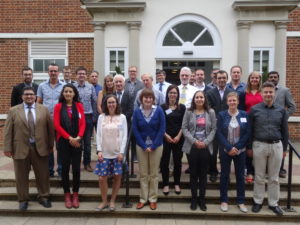 WASCOP M6 meeting has been held on 11th and 12th July in in the amazing venue of Mitchell Hall by Cranfield University (United Kingdom). Partners has summed up the progress within the first six months of the project and planned next steps to follow the project’s timing. Furthermore, consortium has visited Cranfield University laboratories where some of the WASCOP scientific experiments will be conducted in the coming months. Thanks to Cranfield University for the excellent hospitality!
WASCOP M6 meeting has been held on 11th and 12th July in in the amazing venue of Mitchell Hall by Cranfield University (United Kingdom). Partners has summed up the progress within the first six months of the project and planned next steps to follow the project’s timing. Furthermore, consortium has visited Cranfield University laboratories where some of the WASCOP scientific experiments will be conducted in the coming months. Thanks to Cranfield University for the excellent hospitality!
European Energy Efficiency Platform (E3P)
The Joint Research Centre from the European Commission has launched on 5 April the interactive and collaborative online European Energy Efficiency Platform (E3P). This beta platform is conceived to fill the gap opened by scattered data and fragmented knowledge resulting from a rapidly growing energy efficiency market. It is expected to be both a one-stop shop for information retrieval and a meeting point for experts to exchange data and reduce redundant activities.
Energy Efficiency is at the core of the Europe’s 2030 strategy, setting up an indicative target at the EU level of at least 27% for improving energy efficiency (EE) of future energy consumption.
For this purpose, European Commission, in collaboration with Member States, has to propose priority sectors in which significant energy efficiency gains can be reaped. The objective is to ensure the necessary regulatory and financial efforts are implemented to address the challenges faced by our economies in terms of jobs, growth, fairness and democratic change.
In this framework has been developed the European Energy Efficiency Platform (E3P) to fulfill the recognised need to gather, organise, analyse and distribute it in a central system all related energy efficiency fields.
The E3P is organised around the six thematic areas of energy efficiency in products, cities, buildings, transport, industry and distribution (heating, cooling and electricity). A IT platform is at the centre, with interactive and collaborative features. The E3P provides robust data and analysis to support those in charge of the development, implementation and monitoring of energy efficiency policy, industry, consumers’ organisations, standardisation bodies, research institutes, the scientific community and NGOs at the EU, national, regional and local level.

